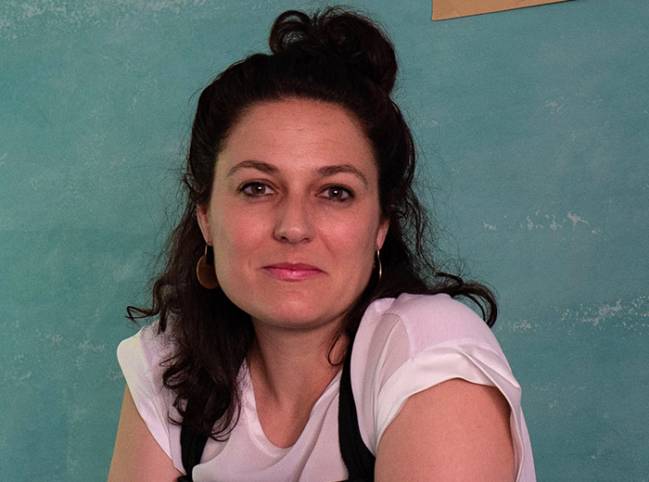After completing her teacher training in Sargans, Asha Ospelt-Riederer studied translation and did a copywriting internship in Zurich. Today she works as a freelance copywriter with her company w.orte, specialises in gender-appropriate communication and teaches as a primary school teacher. She is the mother of two small children and stepmother of two teenagers. Originally from Flums in St. Gallen, she lives in Schaan and works in Sargans. Her leisure activities include reading, yoga, hiking and cross-country skiing. Asha Ospelt-Riederer is 39 years old.
Where and how did you grow up?
I grew up with my parents and two younger brothers in Flums, uneventfully, with lots of cycling and skiing. I was a very well-adjusted and ambitious child, wanted not only to do everything right at school, but also to do it beautifully.
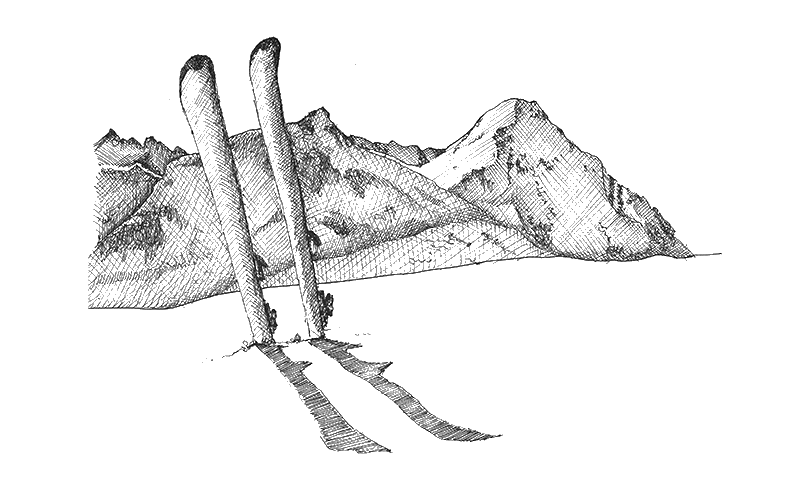
Could you describe your professional background?
According to my parents I wanted to become a teacher after the first day of school. Even though I had a terrible tummy ache from excitement that day. After the teacher training in Sargans, I worked as a teacher at various levels. I still continue to do this part-time. I was absorbed in this profession from the beginning, but I saved up to study translation out of curiosity and the joy of learning. Already during my studies I was able to work on exciting writing assignments, as a proof reader and journalist. After graduating as a federally certified translator I did a copywriting internship in an advertising agency in Zurich. Subsequently I wrote for various magazines, agencies, newspapers and companies and at the same time acquired knowledge about gender-appropriate language. I now work as a freelance copywriter specialising in gender-appropriate communication and as a class teacher part-time with a job-sharing partner.
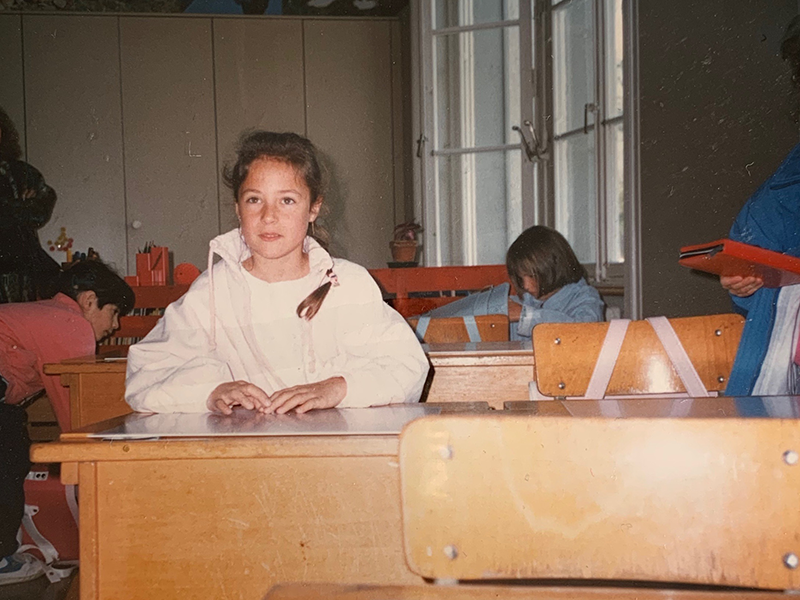
Could you describe your professional background?
According to my parents I wanted to become a teacher after the first day of school. Even though I had a terrible tummy ache from excitement that day. After the teacher training in Sargans, I worked as a teacher at various levels. I still continue to do this part-time. I was absorbed in this profession from the beginning, but I saved up to study translation out of curiosity and the joy of learning. Already during my studies I was able to work on exciting writing assignments, as a proof reader and journalist. After graduating as a federally certified translator I did a copywriting internship in an advertising agency in Zurich. Subsequently I wrote for various magazines, agencies, newspapers and companies and at the same time acquired knowledge about gender-appropriate language. I now work as a freelance copywriter specialising in gender-appropriate communication and as a class teacher part-time with a job-sharing partner.
Were there certain events or stages that were formative for your career?
My family has probably shaped me the most and the circumstances in which I grew up. Modesty was important, as were diligence, decency and family. We didn’t have a car for a long time so we mostly travelled by bike or train. I had a nice, quiet childhood. It made me proud to be able to pay some of my own expenses early on, for example I earned my first great yellow mountain bike at the age of 14 in a holiday job. Ever since I can remember strident, loud women like Hella von Sinnen have fascinated me. They gave expression to something I had no words for. I read a lot on socially critical topics early on.
Were there certain people who were formative for your career?
Yes, there are many. To name them would go beyond the scope of this article and the list would always be unfairly incomplete. But I would definitely like to mention my grandparents. Since my childhood my admiration for them has been growing. Their openness, prudence and gratitude towards the world and each other are overwhelming. They are great role models for me in their way of being.
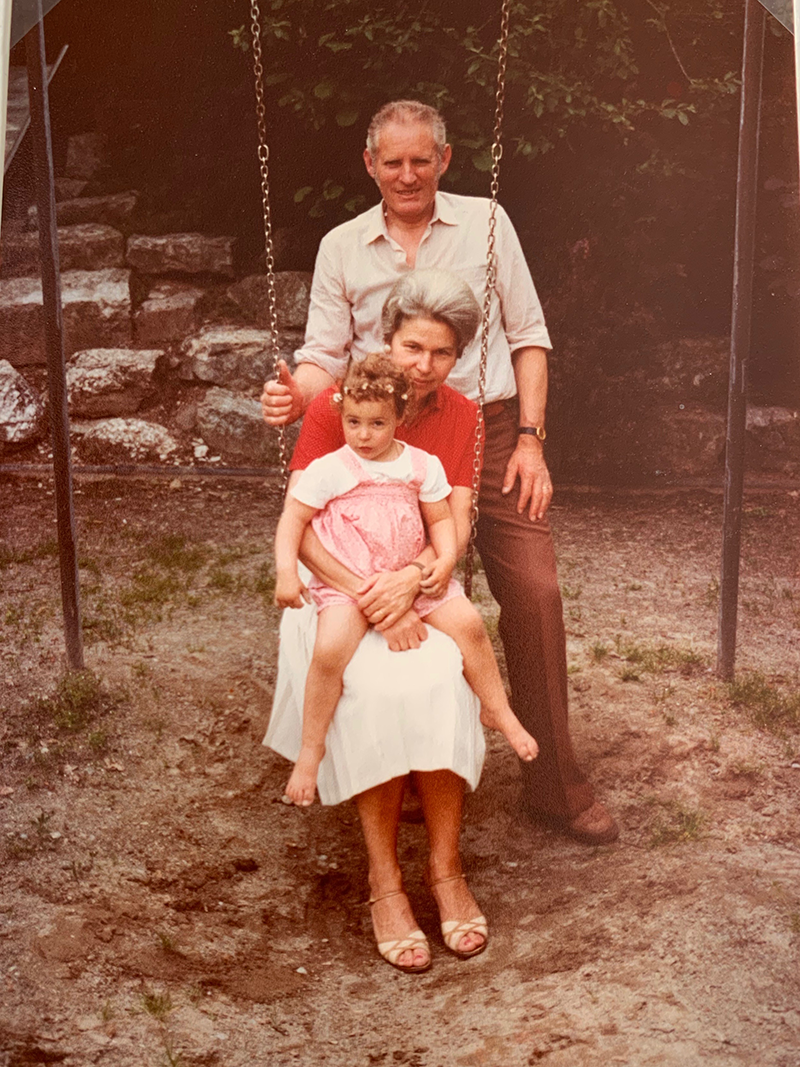
Has your environment supported you in your career?
My environment said the right things at the right moments. It was either supportive or critical. In both cases it helped me because I had to think, find arguments and consolidate my position. I think both support and non-support are important. Because if you’ve only ever had a tailwind, maybe the first little headwind blows you over?
What are your current activities?
I am still a class teacher in a 6th grade class in Sargans, where I have been working for 15 years. That is my professional rock. Everything around it has changed: I became a stepmother a good 10 years ago and now have two daughters who are four and one year old. I started my own business as a copywriter specialising in gender-appropriate communication. I do all these jobs part-time.
Does what you are currently doing fulfil you?
Yes my life fulfils me. I get to dive into a new world every day. I can combine ideas from different areas, professional and private, and let them cross-fertilise each other. This holistic approach means quality of life for me. Sometimes I think that part-time work is taken less seriously than full-time work. For me the opposite is true: I carry out my assignments and activities responsibly, purposefully and with a lot of dedication. As a result I have become a more efficient and thoughtful copywriter, teacher and mother.
What or who inspires you in everyday life?
People. There are so many people who stand up for their convictions, big and small, I admire them. My wonderful children, who make it possible to experience the whole spectrum between the highest heights of emotion and my limits. My wonderful girlfriends who are so smart, thoughtful, honest. And numerous lateral thinkers and writers who share their world-changing ideas and beautiful words with us.
There are ‘magic moments’ when everything seems to fit. Moments that fulfil, inspire and give strength. Moments that confirm that the effort is worthwhile and that what you do is meaningful and valuable. Have you already experienced such moments in relation to your own activities?
In relation to my profession, there was a magical moment during my translation studies. We were given the homework to translate a text from English ‘a little more freely than usual’. I drew on all my resources and rewrote everything. During the discussion the lecturer took my text apart in front of all my fellow students as a particularly cautionary tale. But I wasn’t embarrassed, on the contrary, I jumped for joy inside because from that moment on I knew: I want to write freely! When I can literally put myself in the shoes of the person I’m talking to in an interview and afterwards they find themselves in my words – that’s also magical. A magical moment at school a few years ago was when a student asked for the first time: ‘Should we work with our bench neighbours?’ after I had started speaking in the double form a few weeks earlier without explanation. There I had the proof: it is not even too awkward for children to consider girls and boys equally in terms of language! And then all the small, magical moments: a laugh, a sentence that resonates for years, the tears that come up when I write someone a personal letter. There would be so many magical moments every day if we were completely with ourselves and with what we are doing.
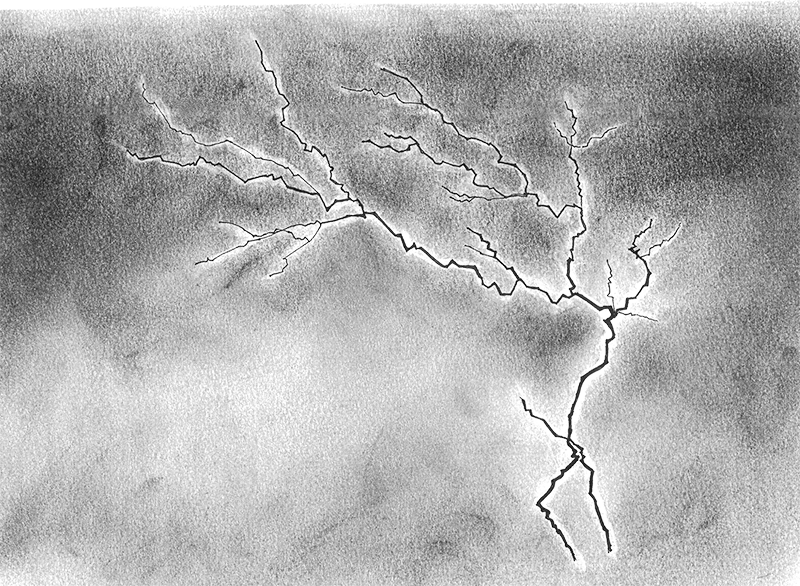
Do you actively do something for it, so that such ‘magic moments’ can happen?
I try to sleep enough to be awake for the magical moments. I try to meditate for at least ten minutes a day to give the head a break and the soul space. Against my nature, I always try to remind myself that you can also do things slowly.
In retrospect, can you find something positive in difficult moments?
I am a great believer in crises. Not that I like being in crises: they are exhausting, gruelling, sad. I’ve been through a few crises, even at a young age, and looking back I have to say to each one: thank you for coming. Difficult moments force us to look closely, to question, to reassess. And if you face them, you can also come out of them stronger.
Is there anything you would do differently in retrospect?
I would like to have seen through certain mechanisms of society earlier and bend less to please, as I sometimes did as a young woman. I would generally like to have understood earlier that we need to empower women and people from groups that are less visibly represented in public in order to strengthen society as a whole.
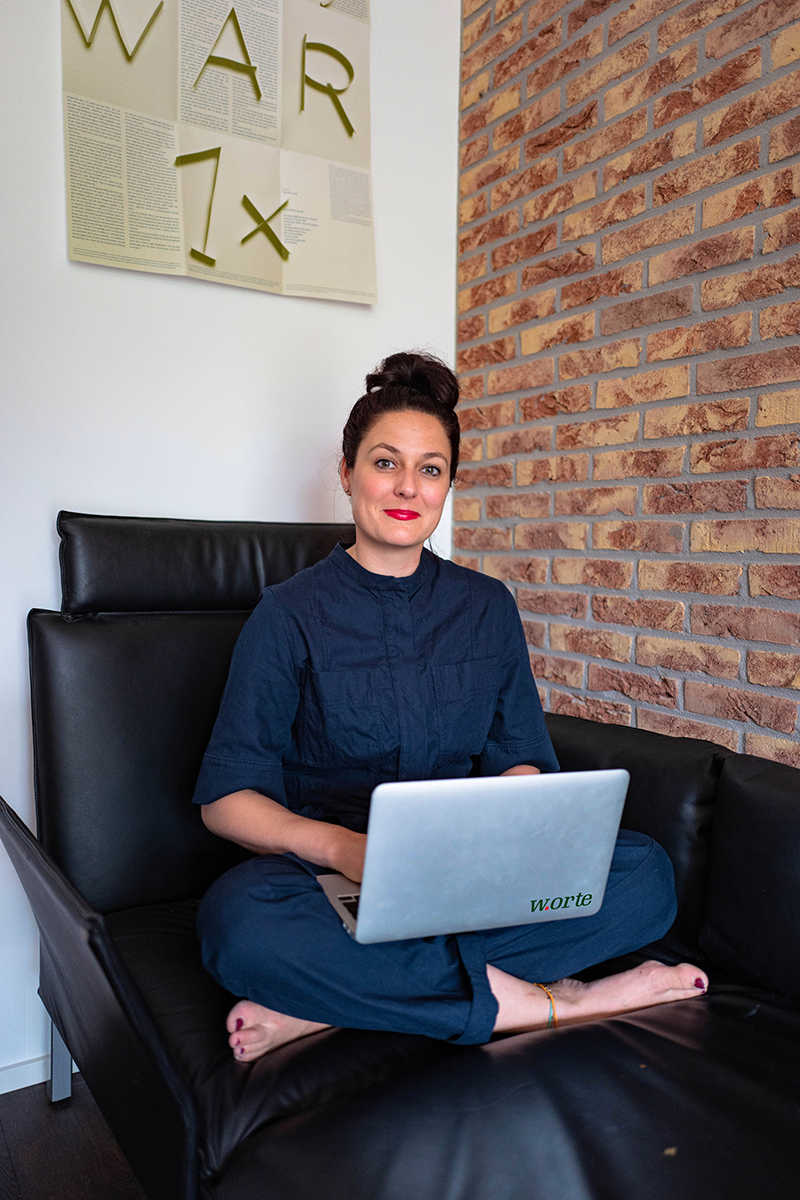
Do you want to contribute to society with your activities?
It would be nice if I could begin to make my children, pupils and students feel that they and their contribution to a fairer world are enormously important. I would like to use my writing to help shift the image of women and men in society away from clichés and stereotypes towards more freedom for all. Language is a small part of reality. But communication and learning take place largely through language – so it’s more than worth a try.
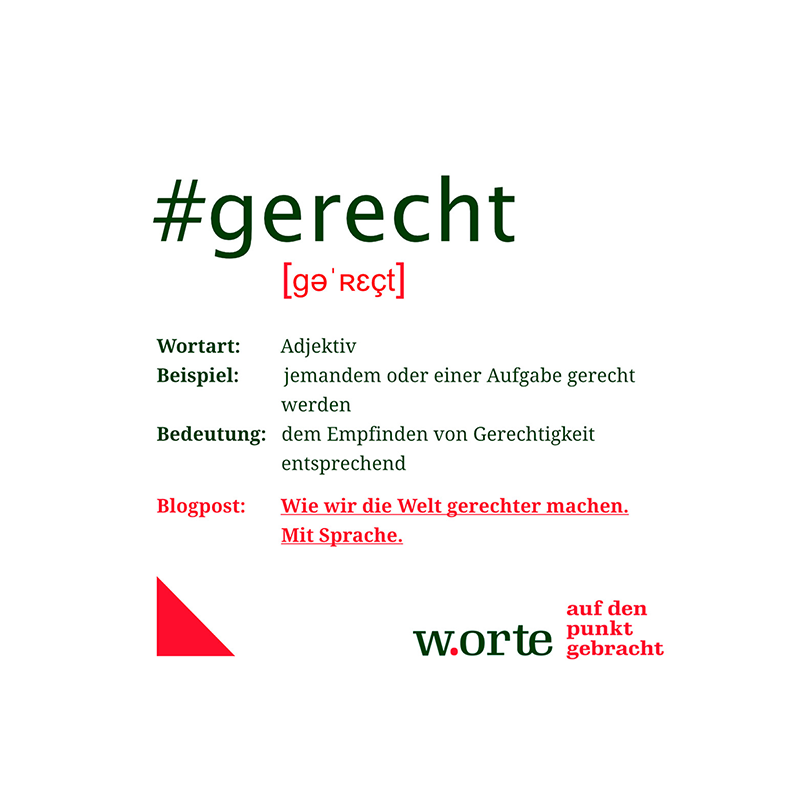
Is the recognition of other people or the public important to you?
As a child and young person, the judgement of my teachers and parents, and subsequently of my entire environment, was enormously important to me. In the meantime, I have learned to no longer make my convictions and actions dependent on a fictitious judgement from outside, but to listen to my own gut and mind and to my heart. I am still practising.

Is there something that is particularly occupying you at the moment?
At the moment, I am preoccupied with change on many levels. We are living in an incredibly dramatic and also exciting period. Never before in human history have the masses known more about what is happening in other parts of the world than now. So much has happened in a short space of time, from #MeToo to forest fires in many parts of the world, war disasters and inhumane treatment of people on the run, Covid 19 lockdown and Black Lives Matter protests. I feel we can turn the tide towards global thinking based on compassion, the awareness that we can only move forward together as humanity.
What are you most grateful for in life?
I am grateful to have been born here, in this incredibly privileged part of the world, not to say the most privileged. This also gives rise to a responsibility. Those who have been richly gifted by fate should also give a lot: Time, energy, ideas, understanding, love or whatever makes the world a better place. Finding my place in this will probably occupy me for some time to come.
Interview
Laura Hilti, October 2020
Illustrations
Stefani Andersen
Links
www.w-orte.li
Credits
Portrait photo/ Working barefoot: Philipp Beeler (mitwind.ch)
All other pictures: private
This interview is part of the project ‘Magic Moments’ by Kunstverein Schichtwechsel, in which people are interviewed about their careers, activities and their magical as well as difficult moments.
Curated by Stefani Andersen and Laura Hilti, Kunstverein Schichtwechsel.
Supported by Kulturstiftung Liechtenstein and Stiftung Fürstl. Kommerzienrat Guido Feger.
>>> All interviews

